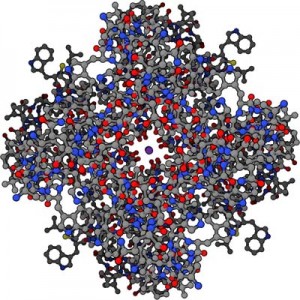The central aim of the experimental and modeling work in my laboratory is to develop an in-depth understanding of the ionic mechanisms and underlying cell biology that mediate normal and pathological electrogenesis and mechanical function within the myocardium. The study of cloned cardiac K+ channels in mammalian cell lines provides a powerful model system for detailed studies of the structure and function of human heart voltage-gated K+ channels. These channels underlie the major repolarizing currents in human heart. They affect contractility, the normal propagation of the impulse, the generation of arrhythmias, and their continuation through re-entry. The work in my lab involves study of the human homologues of Shaker Kv1 (Kv1.4 and Kv1.5) and the Shal Kv4 families (Kv4.2 and 4.3), both of which have central roles in human heart action potential (AP) repolarization. The structural differences between the channels leads to functional alterations in their gating properties, and determines their respective roles during the plateau and final repolarization. This also makes them potential targets for different antiarrhythmic drugs. Our approach has been to understand channel structure-function, channel modulation, and drug block by combining mutations of specific amino acid residues within the structural sequence with chemical drug modification.


